- Home
- H. Rider Haggard
Morning Star
Morning Star Read online
Produced by John Bickers; Dagny; Emma Dudding
MORNING STAR
by H. Rider Haggard
DEDICATION
My dear Budge,--
Only a friendship extending over many years emboldened me, an amateur,to propose to dedicate a Romance of Old Egypt to you, one of the world'smasters of the language and lore of the great people who in theselatter days arise from their holy tombs to instruct us in the secrets ofhistory and faith.
With doubt I submitted to you this story, asking whether you wishedto accept pages that could not, I feared, be free from error, and withsurprise in due course I read, among other kind things, your advice tome to "leave it exactly as it is." So I take you at your word, althoughI can scarcely think that in paths so remote and difficult I have notsometimes gone astray.
Whatever may be the shortcomings, therefore, that your kindness hasconcealed from me, since this tale was so fortunate as to please andinterest you, its first critic, I offer it to you as an earnest of myrespect for your learning and your labours.
Very sincerely yours,
H. Rider Haggard.
Ditchingham.
To Doctor Wallis Budge,
Keeper of Egyptian and Assyrian Antiquities, British Museum.
AUTHOR'S NOTE
It may be thought that even in a story of Old Egypt to represent a "Ka"or "Double" as remaining in active occupation of a throne, while theowner of the said "Double" goes upon a long journey and achieves sundryadventures, is, in fact, to take a liberty with Doubles. Yet I believethat this is scarcely the case. The _Ka_ or Double which Wiedermannaptly calls the "Personality within the Person" appears, according toEgyptian theory, to have had an existence of its own. It did not diewhen the body died, for it was immortal and awaited the resurrectionof that body, with which, henceforth, it would be reunited and dwelleternally. To quote Wiedermann again, "The _Ka_ could live without thebody, but the body could not live without the _Ka_ . . . . . it wasmaterial in just the same was as the body itself." Also, it would seemthat in certain ways it was superior to and more powerful than the body,since the Egyptian monarchs are often represented as making offerings totheir own _Kas_ as though these were gods. Again, in the story of "Setnaand the Magic Book," translated by Maspero and by Mr. Flinders Petriein his "Egyptian Tales," the _Ka_ plays a very distinct part of its own.Thus the husband is buried at Memphis and the wife in Koptos, yet the_Ka_ of the wife goes to live in her husband's tomb hundreds of milesaway, and converses with the prince who comes to steal the magic book.
Although I know no actual precedent for it, in the case of aparticularly powerful Double, such as was given in this romance to QueenNeter-Tua by her spiritual father, Amen, the greatest of the Egyptiangods, it seems, therefore, legitimate to suppose that, in order to saveher from the abomination of a forced marriage with her uncle and herfather's murderer, the _Ka_ would be allowed to anticipate matters alittle, and to play the part recorded in these pages.
It must not be understood, however, that the fact of marriage with anuncle would have shocked the Egyptian mind, since these people, andespecially their royal Houses, made a habit of wedding their ownbrothers and sisters, as in this tale Mermes wed his half sister Asti.
I may add that there is authority for the magic waxen image which thesorcerer Kaku and his accomplice used to bewitch Pharaoh. In the days ofRameses III., over three thousand years ago, a plot was made to murderthe king in pursuance of which such images were used. "Gods of wax . .. . . . for enfeebling the limbs of people," which were "great crimes ofdeath, the great abomination of the land." Also a certain "magic roll"was brought into play which enabled its user to "employ the magic powersof the gods."
Still, the end of these wizards was not encouraging to others, for theywere found guilty and obliged to take their own lives.
But even if I am held to have stretched the prerogative of the _Ka_,or of the waxen image which, by the way, has survived almost to our owntime, and in West Africa, as a fetish, is still pierced with pins ornails, I can urge in excuse that I have tried, so far as a modern may,to reproduce something of the atmosphere and colour of Old Egypt, asit has appeared to a traveller in that country and a student of itsrecords. If Neter-Tua never sat upon its throne, at least anotherdaughter of Amen, a mighty queen, Hatshepu, wore the crown of the Upperand the Lower Lands, and sent her embassies to search out the mysteriesof Punt. Of romance also, in high places, there must have beenabundance, though the short-cut records of the religious texts of thepriests do not trouble themselves with such matters.
At any rate, so believing, in the hope that it may interest readersof to-day, I have ventured to discover and present one such romance,whereof the motive, we may be sure, is more ancient, by far, than theold Egyptians, namely, the triumph of true love over great difficultiesand dangers. It is pleasant to dream that the gods are on the side ofsuch lovers, and deign for their sakes to work the miracles in which forthousands of years mankind has believed, although the scientist tells usthat they do not happen.
How large a part marvel and magic of the most terrible and exalted kindplayed in the life of Old Egypt and of the nations with which she foughtand traded, we need go no further than the Book of Exodus to learn.Also all her history is full of it, since among the Egyptians it was anarticle of faith that the Divinity, which they worshipped under so manynames and symbols, made use of such mysterious means to influence ordirect the affairs of men and bring about the accomplishment of Itsdecrees.
H. R. H.
MORNING STAR
by H. Rider Haggard

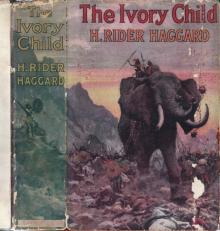 The Ivory Child
The Ivory Child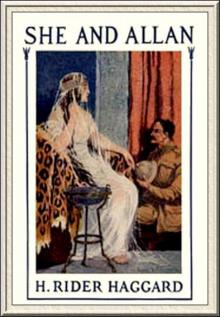 She and Allan
She and Allan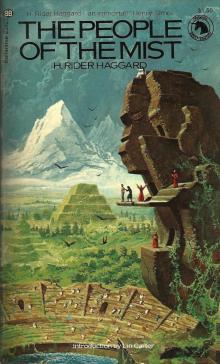 The People of the Mist
The People of the Mist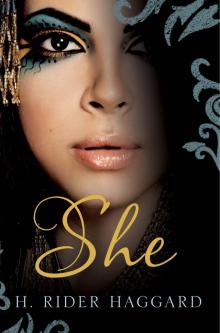 She
She Morning Star
Morning Star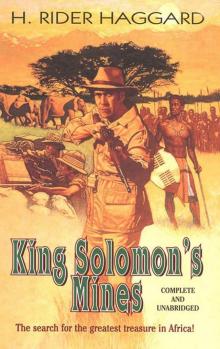 King Solomon's Mines
King Solomon's Mines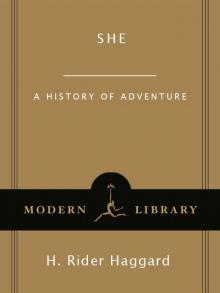 She: A History of Adventure
She: A History of Adventure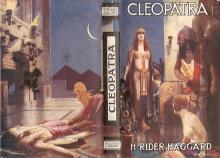 Cleopatra
Cleopatra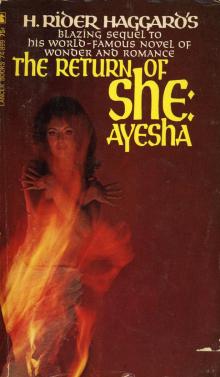 Ayesha, the Return of She
Ayesha, the Return of She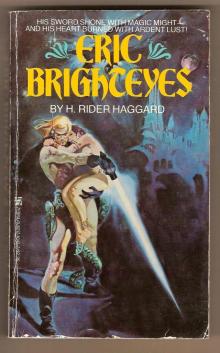 Eric Brighteyes
Eric Brighteyes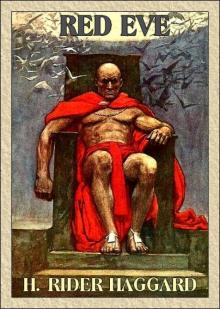 Red Eve
Red Eve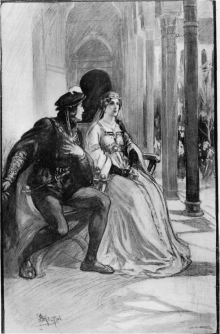 Fair Margaret
Fair Margaret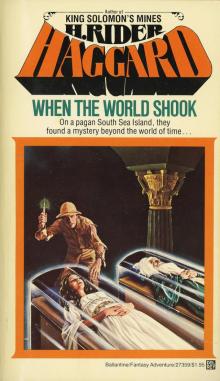 When the World Shook
When the World Shook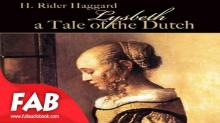 Lysbeth, a Tale of the Dutch
Lysbeth, a Tale of the Dutch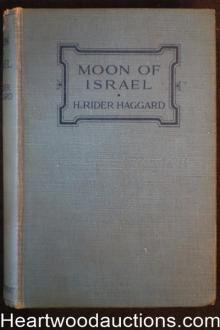 Moon of Israel: A Tale of the Exodus
Moon of Israel: A Tale of the Exodus Long Odds
Long Odds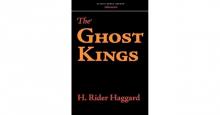 The Ghost Kings
The Ghost Kings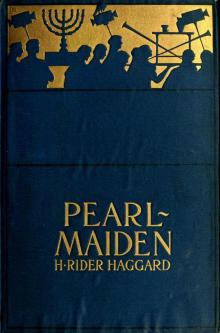 Pearl-Maiden: A Tale of the Fall of Jerusalem
Pearl-Maiden: A Tale of the Fall of Jerusalem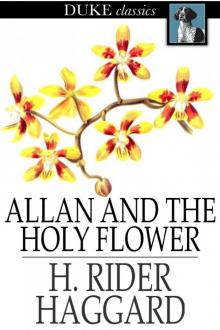 Allan and the Holy Flower
Allan and the Holy Flower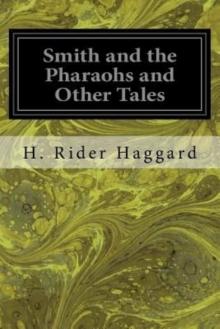 Smith and the Pharaohs, and other Tales
Smith and the Pharaohs, and other Tales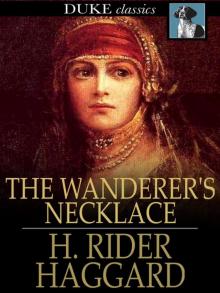 The Wanderer's Necklace
The Wanderer's Necklace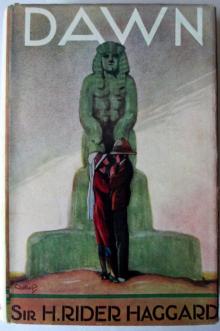 Dawn
Dawn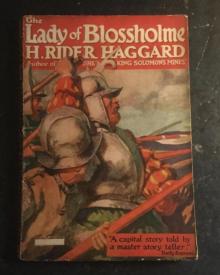 The Lady of Blossholme
The Lady of Blossholme Stella Fregelius: A Tale of Three Destinies
Stella Fregelius: A Tale of Three Destinies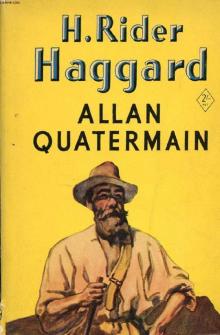 Allan Quatermain
Allan Quatermain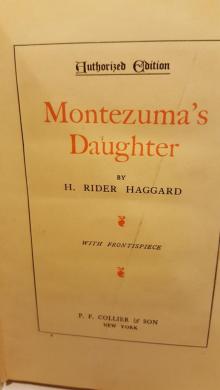 Montezuma's Daughter
Montezuma's Daughter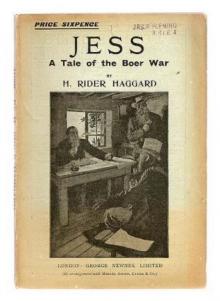 Jess
Jess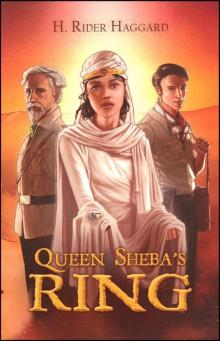 The Brethren
The Brethren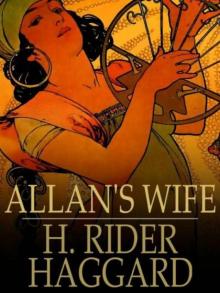 Allan's Wife
Allan's Wife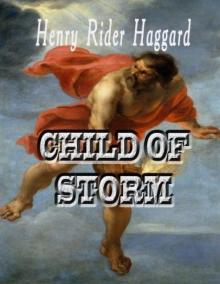 Child of Storm
Child of Storm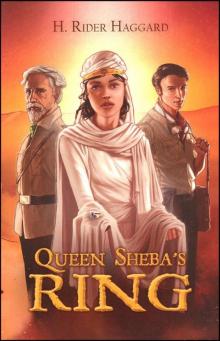 Queen Sheba's Ring
Queen Sheba's Ring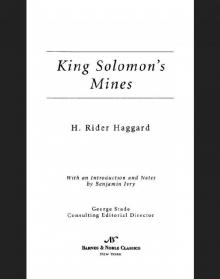 King Solomon's Mines (Barnes & Noble Classics Series)
King Solomon's Mines (Barnes & Noble Classics Series)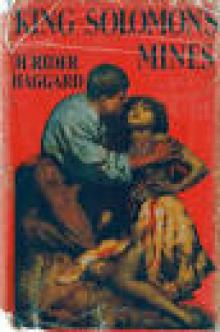 Complete Allan Quatermain Omnibus - Volumes 1 - 10
Complete Allan Quatermain Omnibus - Volumes 1 - 10